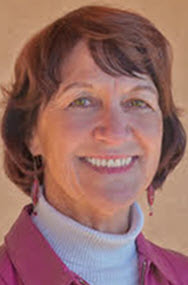 By Mary McPhail Gray
By Mary McPhail Gray
NVW Board Chair
It seems a naïve question—with a common, quick response: “Because they are our future.”
But every elected official, every social agency professional, every teacher and parent know that we are not really committed to supporting our youth—at least not in the sense that we understand they form the foundation of our future.
If the budget of an organization’s mission statement is stated in dollars, then the vetoes and unsuccessful legislative efforts from our state government represent their priorities—and youth are not at the top of the list!
Every cut or lowered funding to health care, child care, social services, and education reflect a lack of investment in youth—and thus in our future.
Each youth that does not grow to his or her full potential is one that will not support a population that is aging—a population that needs a health care system, a transportation system, and a social system that will keep them independent as long as possible.
Sixty percent of adults report difficult childhood experiences, including troublesome divorces, violence, and abuse and neglect. These are traumatic experiences that can be long-lasting and need the intervention of caring and informed professionals who can develop the most powerful antidote to such experiences: a deep and caring relationship.
When Nonviolence Works first began, the major program was mentorship—wherein committed adults made a connection with a youth who was hurting—and longing for deep, authentic and practical guidance and sharing from someone who had managed the challenges of childhood.
As time went by, the funding for mentoring was less available and more prescriptive, and the youth-serving organizations in town recognized the need for more clinical intervention services. Now 70% of NVW’s resources are spent with youth—integrating clinical and educational services in unique ways.
There are never enough resources to do what needs to be done—but staff that serve are investing in youth for all of us. When we write another grant, seek another contract, hold fund raising event, we are always aware that we are searching for resources to benefit all of Taos. Reduced drug involvement, more successful educational achievement, less property damage, more focused career achievements, more volunteer commitments to the community—all these can result from healthier, more confident and productive youth.
The brain is a social organ, and it is deeply affected by the psychosocial environment—the feeling of being loved, connected, and cared for—or not.
A student can accept new information, answer challenges, set goals, and make progress—if their social emotional development is secure. This is the huge challenge we meet in Nonviolence Works. We reach out . . . take in . . .care for. . . and send on their positive journey the youth of our community.
Now as we advocate for a Residential Treatment Center here in Taos—to serve youth and families of the northern part of the state close to home—we are keenly aware that we do this to invest in all our futures so that Taos may prosper and families may live their dreams.
Youth cannot vote—but as they develop they either support a positive future or a decline in possibilities for Taos. Adults need to step up to the voting booth! When you look at the profiles and the commitments of political candidates, note how they are investing in all of us by investing in youth.
NVW has the behavior health largest staff in northern New Mexico and can be reached at www/nonviolenceworks.us and 575-758-4297.
Mary McPhail Gray is the board chair of NVW and can be reached at mcphailconsulting@gmail.com or 575-779-3126.

